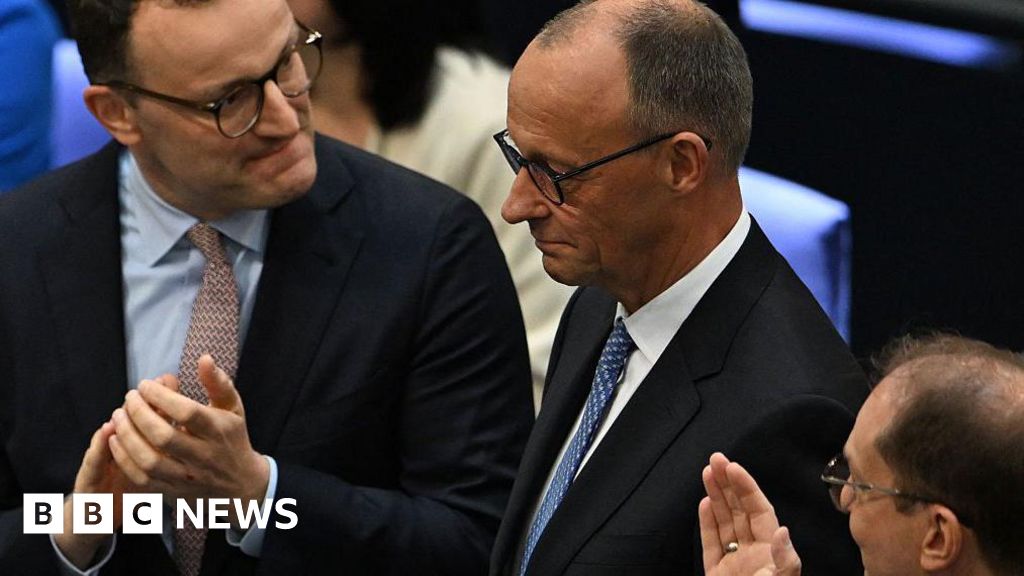Germany’s conservative leader has unexpectedly fallen short of the numbers needed to form a majority in parliament to become chancellor.
Friedrich Merz needed 316 votes in the 630-seat Bundestag but only secured 310, in a significant blow to the Christian Democrat leader, two and a half months after winning Germany’s federal elections.
Two and a half months, they weren’t joking about slow German bureaucracy 😱



So … what happens next?
They voted again, he is chancellor now
The parliament has 14 days to try and get a different (or the same) person elected with the total majority (>50% of votes). If they can not get a person elected with more than 50% of the votes during those 2 weeks they then can elect a person with a relative majority. Since Merz was only short a couple votes they will probably still elect him and this was just a demonstration of power from the SPD since they barely have the 50% in the parliament if both parties combine their votes.
How can there be an invalid vote? What does that mean?
Worst possible outcome would be if in the 2nd vote he gets a majority that shows all of the far right AfD voted for him, too.
Especially since he already did a back room deal to get their support in a vote before.
No one would believe him when he says he didn’t make a deal with them.
Technically, there’s a two-week period during which he or others can try to be elected by absolute majority (316 of 630 votes). After that, the requirements would be lowered to simple majority.
So Merz may still be elected in a second vote. If he fails again, we will likely see a snap election, with the extremist right AfD gaining even more.
A big danger about a second vote could be the AfD voting for Merz for troll reasons. They’ve done this kind of thing before in the state parliament of Thuringia. If Merz got, say, 461 votes in a second vote, it would be obvious that he got the majority not from SPD + Union but by the votes of the AfD. This would trigger massive debates about whether the coalition partners should go ahead with government formation or not.
Another possibility is that of a different coalition forming, either Union + SPD + Greens (so including the Greens in the current planned coalition), or Union + AfD. While I could see the former happening in some scenarios (though probably with a different candidate from the Union), I think the latter will not occur at this point in time, as too many Union members and voters are still strictly opposed to cooperating with the AfD. (But I think it is a realistic scenario in future elections.)
He get’s two more rounds of voting, and will likely be elected in the third round. Otherwise the CDU/CSU will have to forward another candidate, since the election was for the party, not the candidate, they remain the strongest party and could propose anyone to be elected chancellor. But this might crash out the proposed coalition government if they think that the SPD cannot keep its promise to vote for him.
If there is no winner in the second round, the candidate with the most votes wins.
If that is the absolute majority, all is fine.
If there is no absolute majority, the President has the option to appoint the candidate who got the most votes or dissolve the parlament and call for new elections.
I’m not that deeply into German politics, but I would guess: the CDU/CSU compromise with their “values” and start proposing positions in the next government to the AfD, so they can get votes from them.